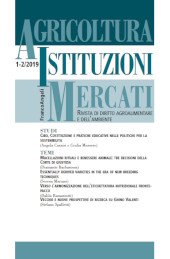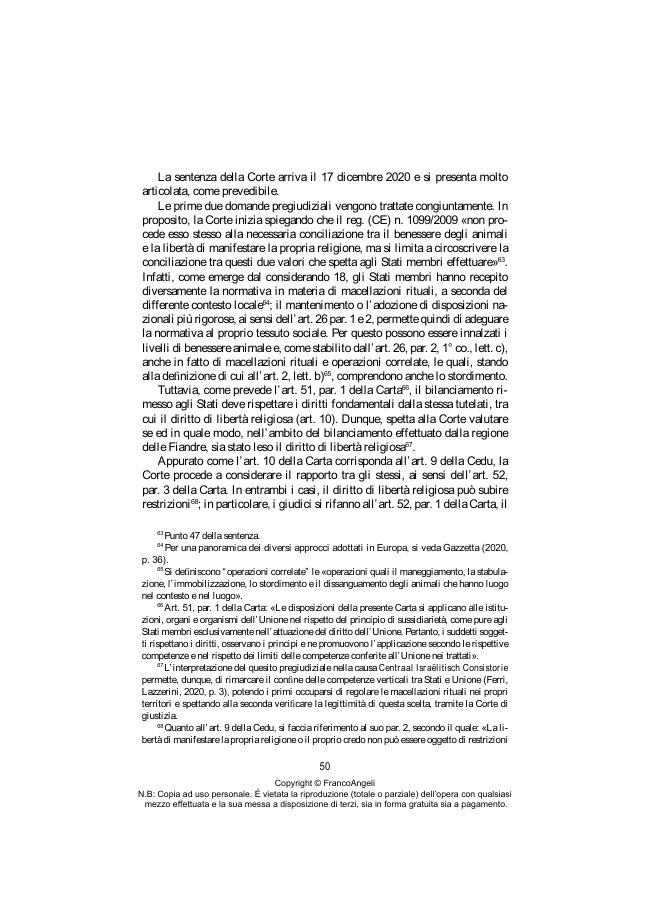La disciplina delle macellazioni rituali nell'Europa del benessere animale : tre decisioni della Corte di giustizia
31-69 p.
La sentenza della Corte di giustizia del 17 dicembre 2020 nella causa Centraal Israëlitisch Consistorie van België e a. ha stabilito che gli Stati membri possono imporre tecniche di stordimento reversibile in caso di macellazioni rituali, sostenendo che tale scelta realizzi un giusto bilanciamento tra benessere animale e libertà religiosa. Questa sentenza rappresenta la terza pronuncia in tre anni consecutivi in materia di macellazioni rituali, a riprova della complessità della questione. Il presente lavoro permette di ricostruire la disciplina dei mercati alimentari religiosi di carni halal e kosher, attraverso l'interpretazione delle principali disposizioni del reg. (CE) n. 1099/2009 in fatto di macellazioni rituali offerta dalle tre sentenze della Corte di giustizia, al fine di comprendere l'impatto di quest'ultime sulla disciplina.
In seguito, si rifletterà sulle maggiori problematiche che ancora oggi caratterizzano i mercati alimentari religiosi, soprattutto in fatto di informazioni, anche alla luce dell'auspicata etichettatura europea del benessere animale, promossa dalla Strategia From farm to fork a garanzia di scelte alimentari sostenibili. [Testo dell'editore].
States are permitted to impose reversible stunning procedures for religious slaughtering. Indeed, according to the court, this rule allows for a fair balance between animal welfare and freedom of religion. In any case, the issue remains thorny since this is the third time in three consecutive years that the court is called to rule on this matter. This comment will follow the development of European legislation on religious slaughter, namely the reg. (CE) n. 1099/2009, through the ruling of the Court of Justice. So the three judgments will be analyzed, with particular attention to their impact. Then the most complex issues in the markets of halal and kosher food will be discussed: the acceptance of previous stunning and the absence of an obligation to label meat from unstunned animals. In the end, the focus will be shifted to the future strengthening of European legislation on animal welfare to make the agrofood system more sustainable, as recommended by From farm to fork Strategy.
In particular, the important topic of animal welfare labeling will be addressed, trying to understand how this tool can fi ll the information gap in the meat market of unstunned animals. [Publisher's text].
Fa parte di
Agricoltura, istituzioni, mercati : rivista di diritto agroalimentare e dell'ambiente : 1/2, 2019-
Articoli dello stesso fascicolo (disponibili singolarmente)
-
Informazioni
Codice DOI: 10.3280/AIM2019-001002
ISSN: 1971-8373
PAROLE CHIAVE
- macellazione rituale, benessere animale, libertà religiosa, etichettatura della carne, etichettatura del benessere animale
- ritual slaughter, animal welfare, freedom of religion, meat labelling, animal welfare labelling



